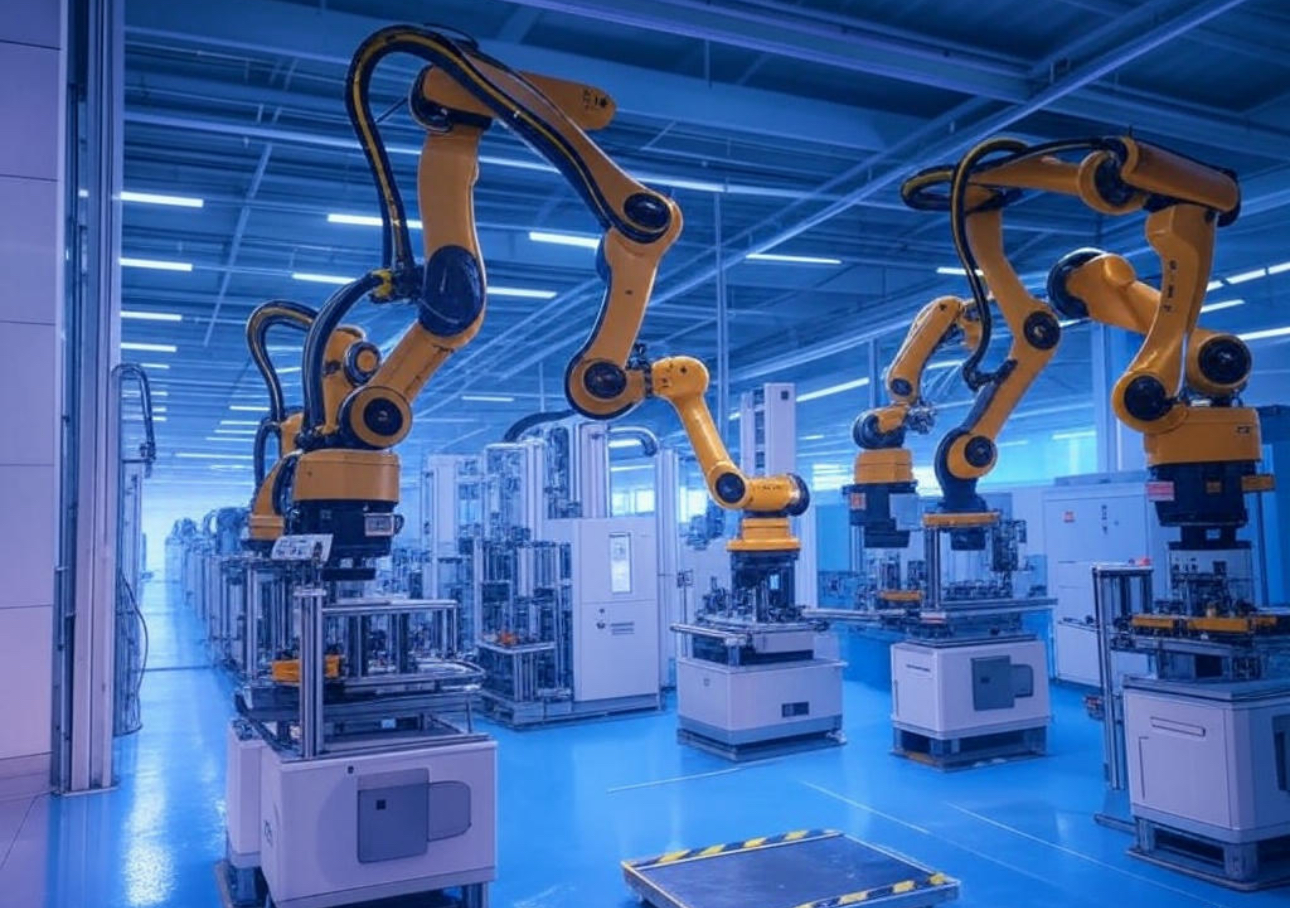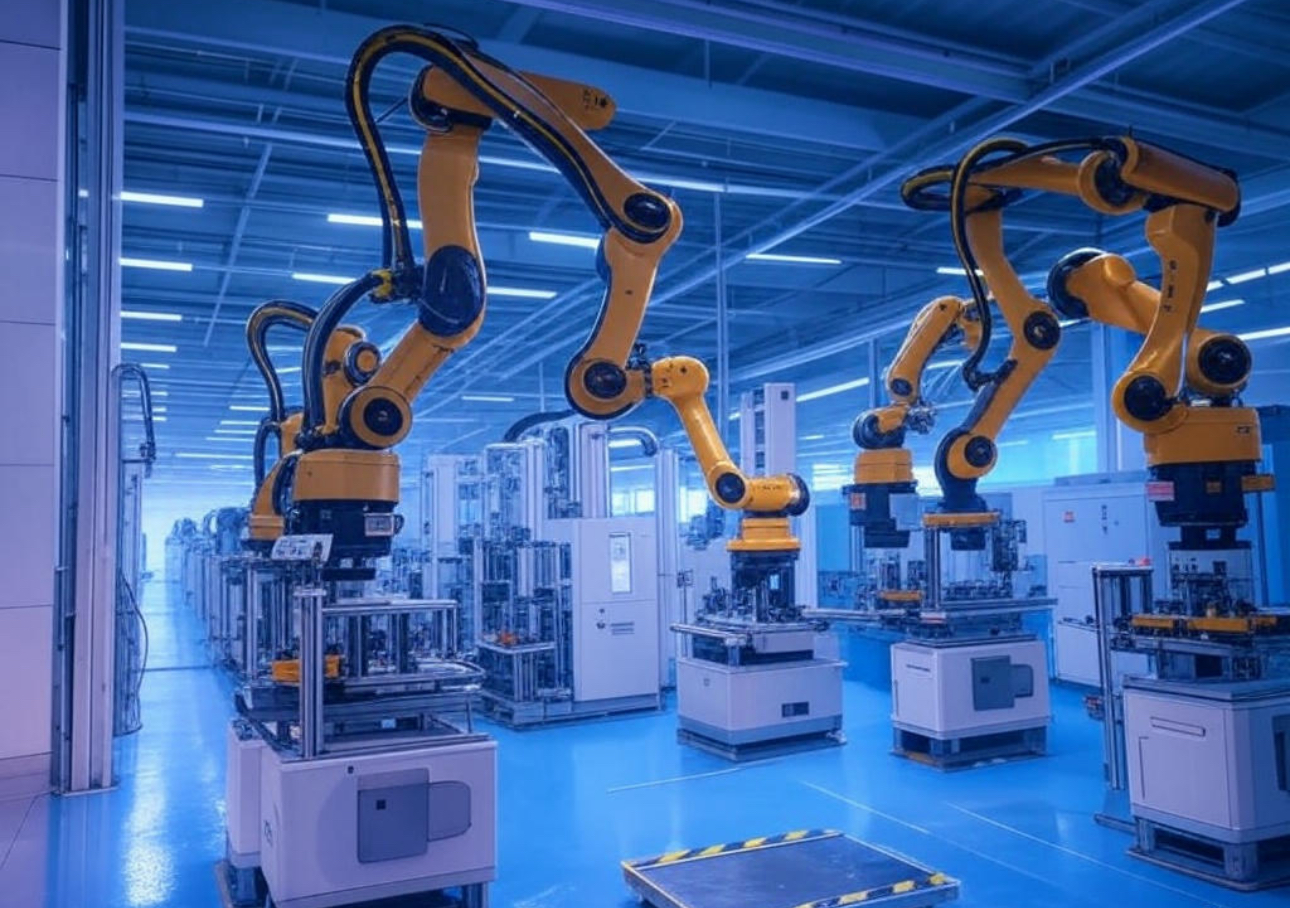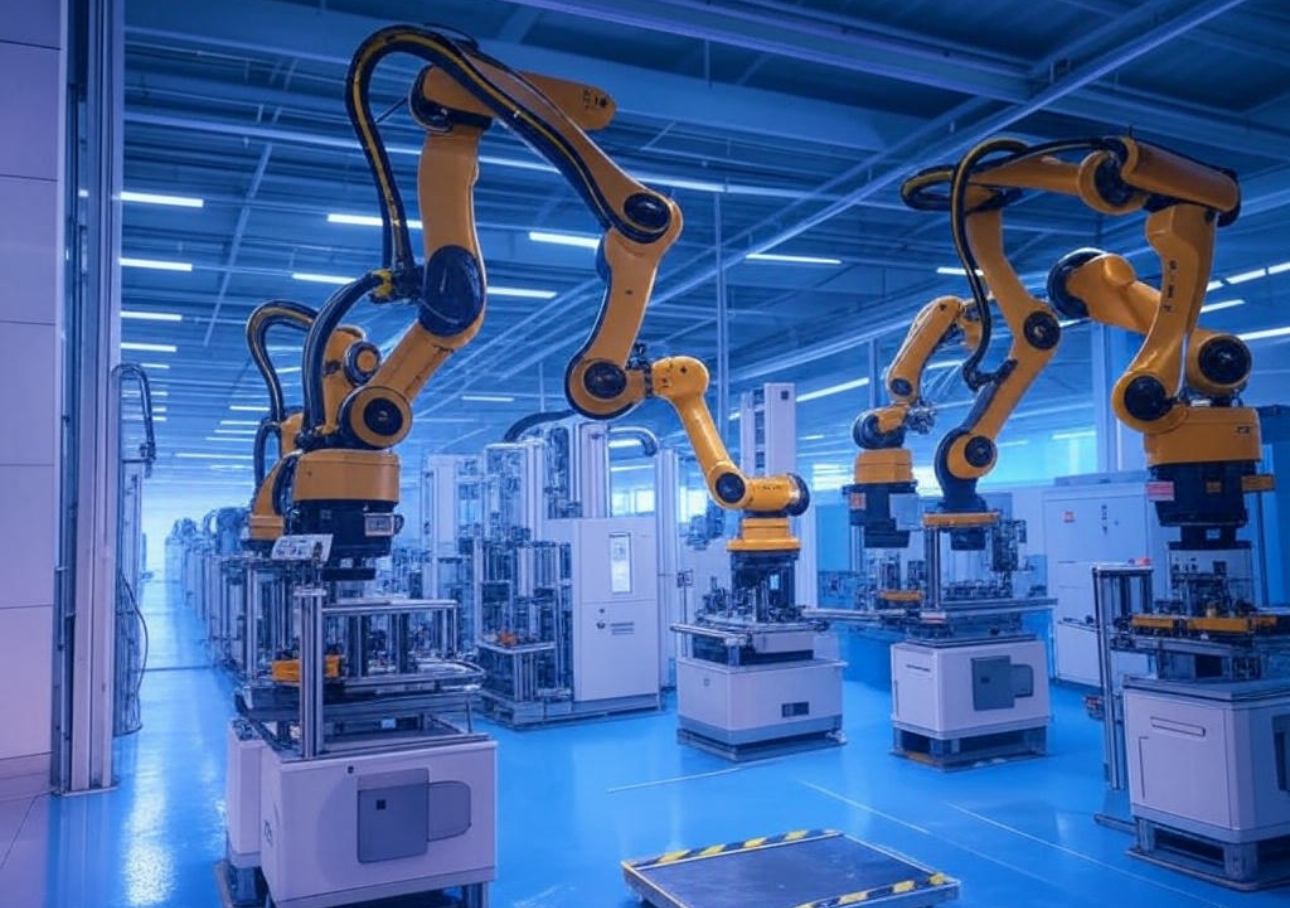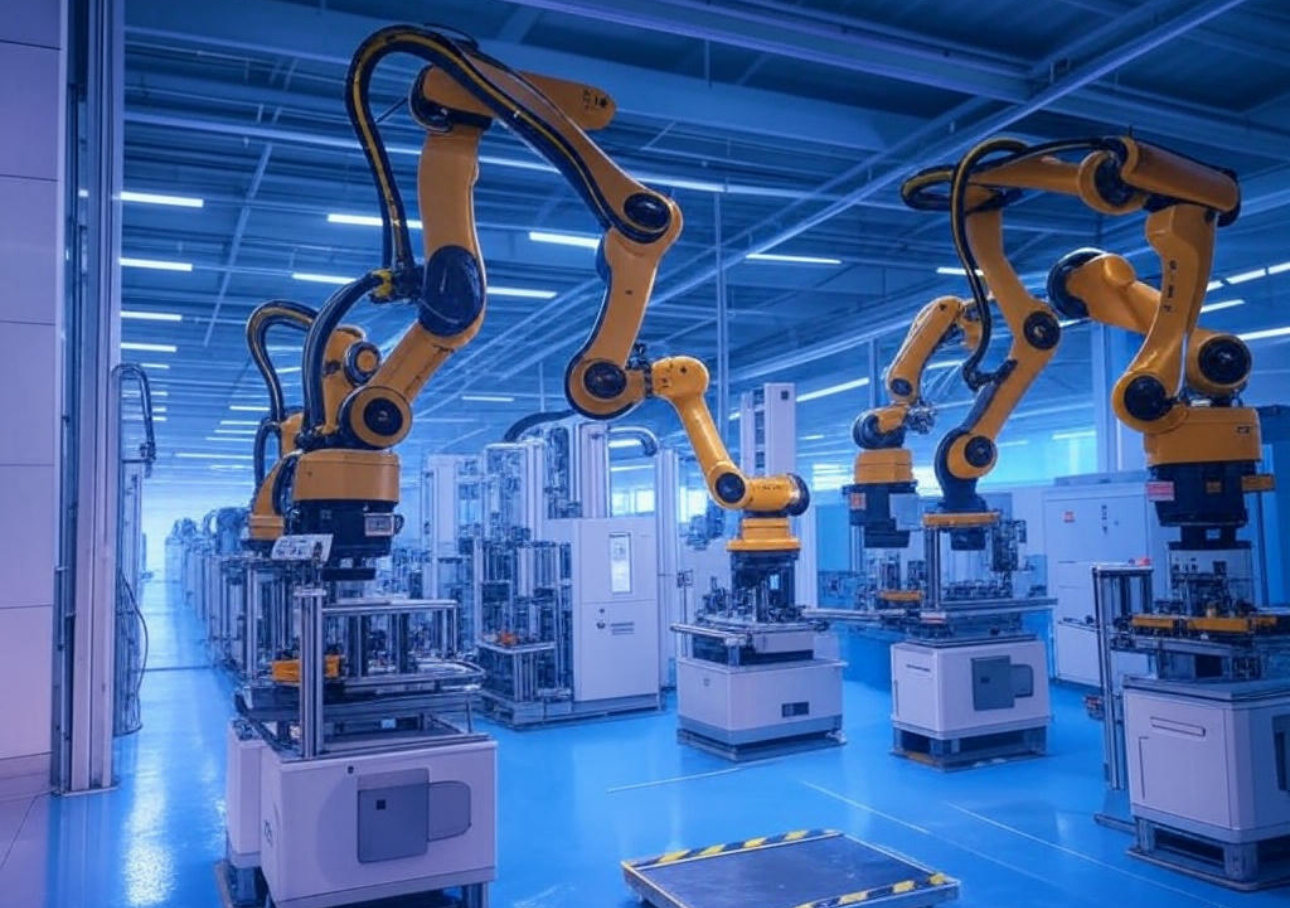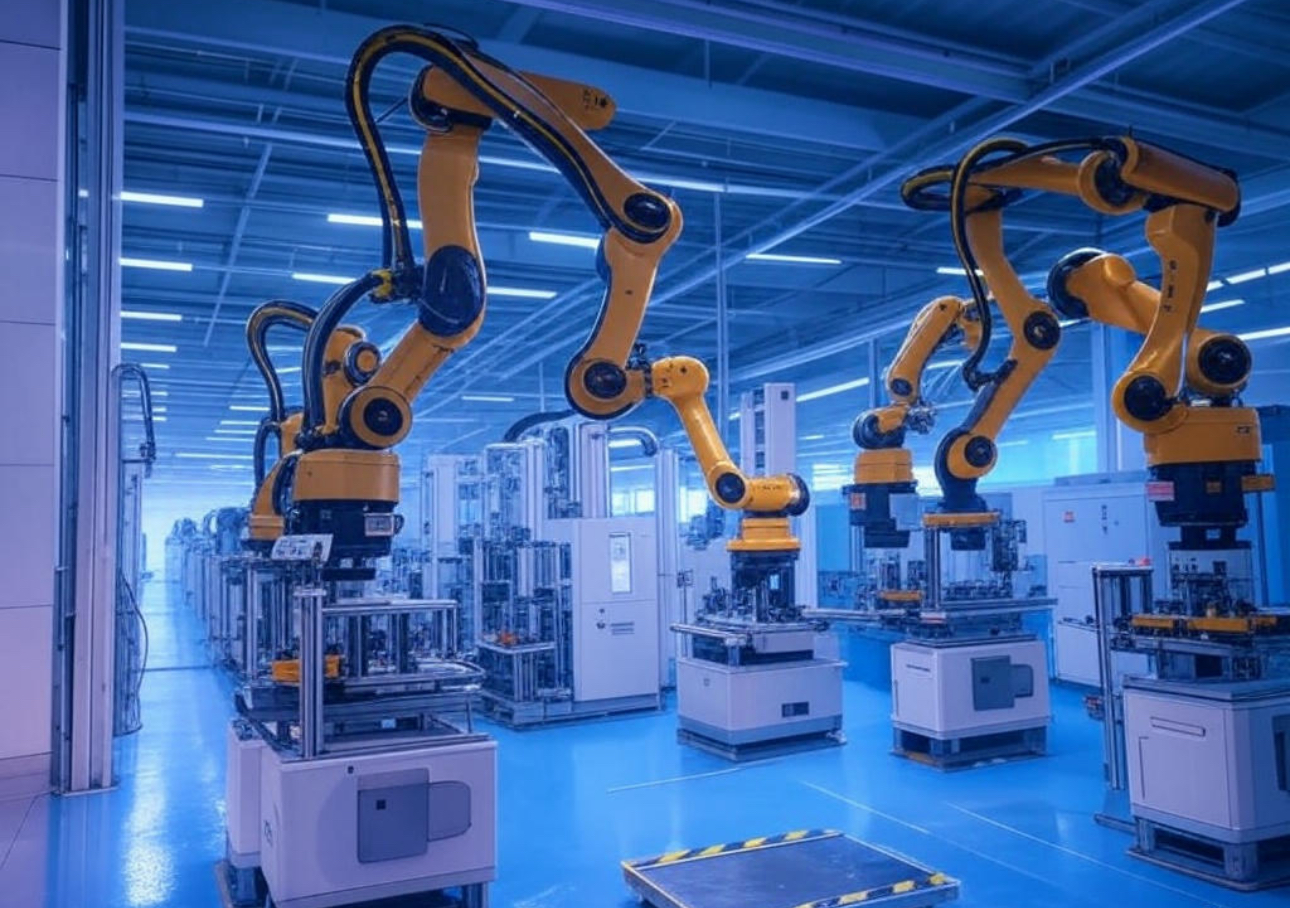Smart manufacturing
The central role of SiC in intelligent manufacturing
1. Improve the efficiency of industrial automation
The core of intelligent manufacturing is industrial automation, and automation equipment relies on high-performance power electronics systems. SiC devices can significantly improve the energy efficiency and response speed of key equipment such as motor drives, servo controls, and robots. For example:
Industrial robots: SIC-based power modules can improve the control accuracy and dynamic performance of robot joint motors for faster and more accurate operation.
Automated production lines: The high switching frequency and low loss characteristics of SiC devices optimize the performance of inverters and inverters, reduce energy consumption, and increase production efficiency.
2. Optimize energy management
Intelligent manufacturing puts forward higher requirements for the efficient use of energy. SiC semiconductors play an important role in energy conversion and management:
Photovoltaic inverters: SiC devices can increase the conversion efficiency of solar power generation to more than 98%, reducing energy loss.
Energy storage system: In the battery storage and charging and discharging process, SiC devices can reduce energy loss and extend battery life.
Smart grid: SIC-based power electronics improve grid stability and response speed, supporting efficient access to distributed energy sources.
3. Promote green manufacturing
The high performance characteristics of SiC semiconductors are highly compatible with the concept of green manufacturing:
Reduce carbon emissions: By improving the energy efficiency of equipment, SiC technology can significantly reduce the carbon footprint of industrial production.
Support for electric vehicle manufacturing: SiC devices are the core components of the electric vehicle drive system, which can improve the driving range and charging efficiency, and indirectly promote the development of green transportation.
4. Enable high-end manufacturing equipment
In the field of high-end manufacturing, SiC semiconductors provide strong technical support for precision machining, laser equipment, 3D printing, etc. :
Laser processing: The high switching frequency and low loss characteristics of SiC devices improve laser stability and output accuracy.
Precision machine tools: SIC-based motor drivers enable higher speed and lower vibration, improving machining accuracy and surface quality.
Future outlook of SiC and intelligent manufacturing
With the in-depth advancement of Industry 4.0, the performance requirements of intelligent manufacturing on power electronic systems will be further enhanced. With its technological advantages, SiC Semiconductors will play a greater role in the following areas:
Edge Computing and Internet of Things (IoT) : Efficient power solutions for smart sensors and edge computing devices.
Digital Twin and Predictive Maintenance: Support real-time data acquisition and analysis for predictive maintenance through high-performance power electronics systems.
Artificial Intelligence and Machine Learning: Provide stable and efficient power support for AI-driven intelligent manufacturing systems.
Conclusion
SiC semiconductors are not only a symbol of technological innovation, but also the core driving force of intelligent manufacturing towards an efficient, green and intelligent future. With the continuous maturity and cost reduction of SiC technology, its application in the industrial field will be more extensive, injecting strong impetus to the transformation and upgrading of the global manufacturing industry. In the future, the deep integration of SiC and intelligent manufacturing will certainly open a new chapter in the industrial revolution.

